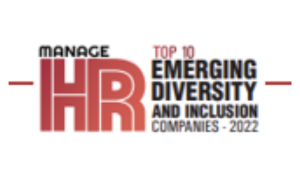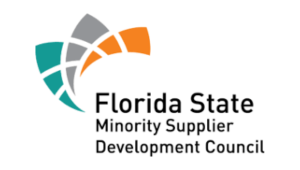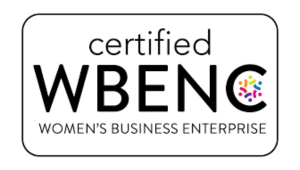Independence Day often called the Fourth of July, is a public holiday that celebrates the birth of American independence from Britain with the adoption of the Declaration of Independence on July 4th, 1776.
How do most Americans celebrate Independence Day? What activities do they participate in? How do they dress? What food do they eat?
What does it mean to be a Black American on July 4th, 2021? Black Americans generally reflect on Patriotism like most other citizens on this July 4th holiday following roughly a year of National Racial Unrest.
The U.S. is experiencing a reckoning over the fact that the promises of America are not fulfilled equally. Last July, in the thick of the George Floyd protests, National Public Radio (NPR) asked 12 Black American community leaders to share how they experience patriotism ahead of the July Fourth celebration. It’s a 5-minute listen and well worth the time spent.
Patriotism and Ending Systemic Racism
These community leaders and most Black citizens are highly patriotic and equally committed to ending systemic racism. At the conclusion of this NPR broadcast, Frederick Douglass is referred to:
FRANTZ WHITFIELD: As a Black man, I really don’t take pride in the independence of a country where I feel, in the year 2020, I have to talk about police reform. I celebrate the history of my culture, my ancestors who sacrificed so much for me to have a somewhat comfortable life.
JUANA SUMMERS: Instead of celebrating July Fourth, Whitfield is thinking about July 5, the day in 1852 when Frederick Douglass delivered a speech in which he said, this Fourth of July is yours, not mine. You may rejoice, I must mourn.
Frederick Douglass and The Fourth of July
Frederick Douglass was an American social reformer, abolitionist, orator, writer, and statesman. After escaping from slavery in Maryland, he became a national leader of the abolitionist movement in Massachusetts and New York, becoming famous for his oratory and incisive antislavery writings.
In Frederick Douglass’ landmark 1852 speech, “What to the Slave is the Fourth of July?” he exposed the hypocrisy at the heart of American democracy in the antebellum period. Douglass addressed descendants of white American colonists in Rochester, New York—colonists who had declared independence from the oppression of British rule only to construct a new world predicated on the enslavement of other human beings. He galvanized the audience to examine these contradictions in the wake of a legal decision that would seal the fates of many thousands of enslaved Africans for over a decade.
The Fugitive Slave Act of 1850—passed two years before Douglass’ address—called for all runaway slaves to be returned to their masters even if they had escaped to states where slavery was outlawed. As hundreds of enslaved Africans had fled captivity each year in the preceding decade, this legislation represented a significant threat to existing mechanisms of escape—as well as the effort to grow and mobilize the pool of free blacks. And though the act ultimately passed, some scholars argue that this regressive move would ultimately hasten the march toward abolition and the Reconstruction period that followed.
The Ignorant and Insidious Denial of Systemic Racism
The current regressive move is the position taken by some political leaders that systemic racism doesn’t exist.
On April 25, 2021, Sen. Lindsey Graham of South Carolina denied that systemic racism exists in the United States. Asked by Fox News’s Chris Wallace whether systemic racism exists across American institutions, Graham said no.
“Not in my opinion. We just elected a two-term African-American president,” he said, referring to former President Barack Obama, who was in office from January 2009 to January 2017. “The vice president is of African American-Indian descent,” he continued, referring to Kamala Harris. “So our systems are not racist. America’s not a racist country.”
Graham’s rationale is like saying systemic racism didn’t exist in the 1870s because Frederick Douglass served under five presidents as U.S. Marshal for D.C. (1877-1881), Recorder of Deeds for D.C. (1881-1886), and Minister Resident and Consul General to Haiti (1889-1891). His presence before and during the Civil War was most notable as an advisor to President Abraham Lincoln during the debate over constitutional amendments to guarantee voting rights and civil liberties for Black Americans. Douglass’s accomplishments were tremendous for overcoming systemic racism, not proof that it didn’t exist.
Why Disrupting Systemic Racism Matters to Corporate Workplaces
Extensive research and data illustrate how systemic racism in the United States makes basic experiences like banking, education, employment, and interactions with law enforcement vastly different for people of color compared to white people.
Fortunately, unlike Graham and some other political leaders, corporate leaders rely on valid and reliable data for decision-making and strategic positions with regards to disrupting systemic racism:
- The Society for Human Resource Management is a professional human resources membership association headquartered in Alexandria, Virginia. SHRM promotes the role of HR as a profession and provides education, certification, and networking to its members while lobbying Congress on issues pertinent to labor management.
- Fortune Magazine asks the question; “Change the world—for whom?” Why addressing racism must be a top corporate priority.
- Forbes Magazine Systemic Racism In The Workplace: How To Move From Acknowledgment To Lasting Change.
- On October 5, 2020, CEO Action for Diversity & Inclusion™ (CEO Action), the largest CEO-driven business commitment to advance diversity and inclusion (D&I) in the workplace, announced the launch of CEO Action for Racial Equity, a fellowship that provides the opportunity for CEO Action signatories to advance racial equity through public policy.
How to Talk About Race and Racism with Your Employees
This year more than ever, Social justice and racial equality are more than just hot topics on social media. Employees are talking about these issues in the workplace, and employers can bolster their diversity, equity, and inclusion efforts by providing a safe space for workers to have respectful and honest conversations.
Inclusive Leaders Group can help with resources such as HOW TO TALK ABOUT RACE IN THE WORKPLACE. Informal speaking engagements, challenging conversations, difficult discussions, and town halls expertly and sensitively facilitated are formats that we do well.
Contact Us for a FREE consultation regarding your diversity, equity, and inclusion objectives.








